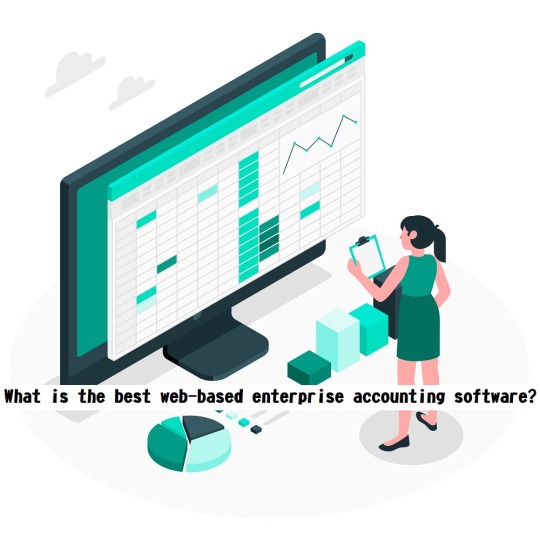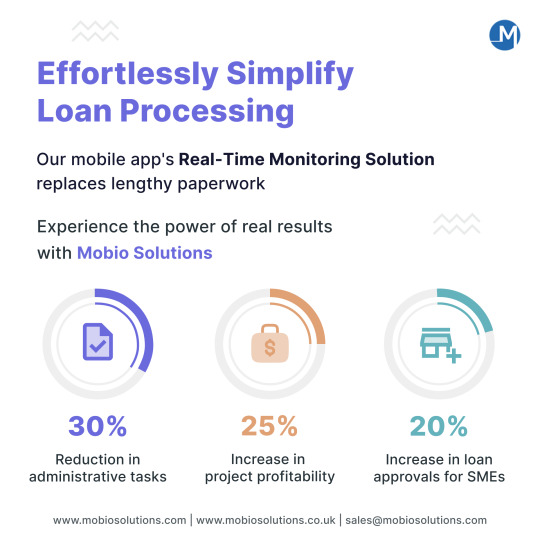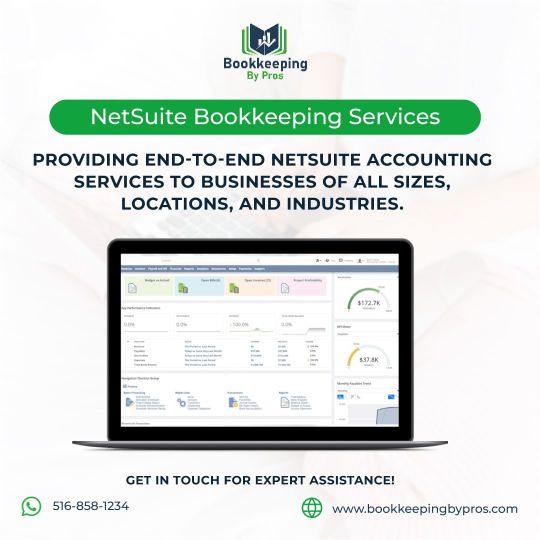#financial management
Text
I see a disturbing number of people, mostly millennials, these days, who have significant incomes and are starting to amass significant savings, who have terrible financial management skills. People who live at home with parents and get a full time job can accumulate money really fast. A lot of people are letting huge amounts of money, like sometimes as much as $20,000 or more, accumulate in checking accounts where it is earning either no interest or negligible interest.
Because inflation is high (over 3% these days), you are effectively losing money when it sits there. Also you're allowing the bank to profit off it; it's lending your money out to other people, often at interest rates as high as 6-7% or more, and it's not paying you for it.
If you have more than maybe around $3000 dollars in an account, you want that money earning interest. Here are things you can do to earn more from your money:
Open a savings account at a higher yield. Go to a different bank if necessary. CIT Bank has rates around 5% these days.
Pay off high interest rate debt but not low-interest rate debt. If the interest rate is above about 7-8% definitely make it a priority to pay it off ASAP. If it is above 5% it is still better to pay it off than to sit on your money. If it is much below 5%, pay it off as slowly as possible (minimum payment only) because there are risk-free ways to earn more interest on your money.
If you don't need the money in the short-term, consider a CD (Certificate of Deposit) which offers a fixed interest rate over a certain time. Often you can get a slightly higher rate by tying your money up for 3 months or 6 months or sometimes even longer. These are good options if you have a specific expenditure in your future, like perhaps moving or buying a home, but you know it won't happen until after a certain date.
Open a brokerage account. Brokerage accounts allow you to buy and sell investments such as stocks, mutual funds, or bonds, which include CD's from banks as well as treasury and municipal bonds and corporate bonds. You get more options for buying CD's (i.e. you can compare many different banks side-by-side, buy CD with the best rate, and manage multiple CD's within a single interface.) Most brokerage accounts have no fees and typically no or very low minimum investments. There is no reason not to have one if you have a few thousand dollars.
In a brokerage account, buy a money market mutual fund. Look for one with no load and no transaction fee, a high yield, and a low expense ratio, and a fixed share price of $1 per share. My two favorite are SWVXX and SNSXX. SWVXX has a higher yield (about 5.19%) whereas SNSXX has a lower yield (just over 5%) but is non-taxable on state income taxes, so SNSXX is a better choice if you have a high state tax rate, otherwise SWVXX is better.
Consider opening a Roth IRA if you haven't, and then, if able, contribute the maximum amount each year. You are allowed to make a contribution that counts towards the previous year, up until the tax filing deadline of the current year. So for example today it is Mar. 14th, 2024, so you can open a Roth IRA today and contribute the max ($6,500) for the 2023 year and also the max ($7,000) for 2024, for a total of $13,500. The main advantage of a Roth IRA is that the money in them can grow tax-free. Roth IRA's benefit anyone able to have one (the richest people are not allowed to contribute to them) and are especially important for people who are self-employed, change jobs a lot, or never work full-time, so they don't have a consistent employee-provided retirement plan.
Consider investing in stocks. Stocks are riskier (in that their price changes, and you can lose money when investing in them), but tend to have a higher yield than savings and money market accounts and funds. The simplest way to buy stocks is to buy an ETF (exchange-traded-fund). I recommend buying one that follows the S&P 500 and has a low expense ratio like SPY or VOO. Whatever you buy, reinvest the dividends and let it grow, contribute a little money every year so are putting in money even in years the market is down. On average you get about a 10% return in the market but it is unpredictable and you will lose in some years, but that's okay, you're not retiring for many decades and the money will have grown a lot by then.
There are options regardless of your risk profile. It is throwing your money away to let a lot of money sit in a checking account. At a bare minimum, go for a high-yield savings account, CD, or better yet get a brokerage account, put it in high-yield money market funds like SWVXX, shop around for CD's or other bonds with the highest rates, and if you are able to tolerate some risk and want a higher return, consider putting some money in more aggressive investments like stocks.
I am 100% for tax reform and other reform to curb the extreme concentration of wealth in the hands of a few, but it's also important to take your financial situation into your own hands. Get financially comfortable. Get a stake in the US economy. Empower yourself so you can live better and help your family, friends, and the causes you care about.
10 notes
·
View notes
Text
Personal finance strategies for saving and investing

Table of Contents:
1. Introduction
2. Importance of Personal Finance Strategies
3. Saving Strategies
1. Budgeting
2. Automating Savings
3. Cutting Expenses
4. Investing Strategies
1. Diversification
2. Retirement Accounts
3. Passive Income Streams
5. Conclusion: Maximizing Financial Growth
6. FAQ Section
Introduction:
In the realm of personal finance, navigating the complexities of saving and investing can be daunting. However, armed with the right strategies and knowledge, individuals can pave their way to financial security and prosperity. This comprehensive review delves into the intricacies of personal finance strategies for saving and investing in 2024, exploring various techniques and approaches to optimize wealth accumulation and growth.
**1. Importance of Personal Finance Strategies:**
Effective personal finance strategies serve as the cornerstone for achieving financial stability and long-term prosperity. By meticulously planning and implementing strategies tailored to individual goals and circumstances, individuals can gain control over their finances, mitigate risks, and build a solid foundation for future endeavors. Whether aiming for short-term goals like purchasing a home or planning for retirement, strategic financial management is indispensable.
**2. Saving Strategies:**
**1. Budgeting:**
Budgeting stands as the fundamental pillar of financial management, providing a roadmap for allocating income and expenses. By meticulously tracking expenses and setting realistic spending limits, individuals can identify areas of overspending and redirect funds towards savings and investments. Utilizing budgeting apps or spreadsheets simplifies the process, enabling better decision-making and fostering financial discipline.
**2. Automating Savings:**
Automation streamlines the saving process, ensuring consistent contributions towards financial goals. Setting up automatic transfers from checking to savings accounts or utilizing employer-sponsored retirement plans automates savings, removing the temptation to spend impulsively. Additionally, utilizing apps that round up purchases to the nearest dollar and deposit the difference into savings accounts fosters incremental savings growth effortlessly.
**3. Cutting Expenses:**
Trimming unnecessary expenses is paramount in bolstering savings potential. Conducting regular expense audits aids in identifying discretionary spending that can be reduced or eliminated. Negotiating bills, opting for generic brands, and embracing frugal habits contribute to significant cost savings over time. Redirecting these savings towards investments amplifies wealth-building opportunities and accelerates financial progress.
**3. Investing Strategies:**
**1. Diversification:**
Diversification is the bedrock of investment strategy, spreading risk across various asset classes to minimize exposure to volatility. By allocating investments across stocks, bonds, real estate, and alternative assets, individuals can optimize risk-adjusted returns and cushion against market fluctuations. Regular rebalancing ensures alignment with evolving financial goals and risk tolerance levels.
**2. Retirement Accounts:**
Maximizing contributions to retirement accounts such as 401(k)s or IRAs offers tax advantages and accelerates wealth accumulation. Employers often match contributions to retirement plans, amplifying the benefits of consistent savings. Leveraging tax-deferred growth and compound interest within retirement accounts empowers individuals to secure a comfortable retirement lifestyle.
**3. Passive Income Streams:**
Diversifying income sources through passive streams complements traditional employment income, fostering financial resilience and independence. Investing in dividend-paying stocks, rental properties, or creating digital assets like e-books or online courses generates recurring income with minimal ongoing effort. Cultivating multiple passive income streams bolsters financial security and enhances wealth-building potential.
**5. Conclusion: Maximizing Financial Growth:**
In conclusion, embracing personalized finance strategies tailored to individual circumstances is paramount in achieving financial prosperity. By prioritizing saving and investing, individuals can cultivate a robust financial foundation, mitigate risks, and capitalize on growth opportunities. With discipline, diligence, and strategic planning, the path to financial freedom becomes attainable for everyone.
**6. FAQ Section:**
1. Q: How much of my income should I allocate towards savings?
A: Financial experts recommend saving at least 20% of income towards savings and investments to ensure long-term financial security.
2. Q: Is it better to pay off debt before saving or investing?
A: It depends on the interest rates of the debt. High-interest debt should be prioritized for repayment, while simultaneously allocating a portion towards savings and investments to capitalize on compounding returns.
3. Q: What are some low-risk investment options for beginners?
A: Beginner-friendly investment options include index funds, exchange-traded funds (ETFs), and robo-advisor platforms, offering diversified exposure to the market with minimal risk.
4. Q: How often should I review my investment portfolio?
A: Regular portfolio reviews, typically quarterly or semi-annually, are recommended to ensure alignment with financial goals, risk tolerance, and market conditions. Rebalancing may be necessary to maintain diversification and optimize performance.
Learn more
#Personal Finance Strategies#Saving#Investing#Financial Management#Budgeting#Automation#Expense Reduction#Diversification#money
3 notes
·
View notes
Text
Financial Planning Worth $1-2 Million US Dollars. I would request you all to go through this guide and share it with everyone you know, so that they can secure their financial future.
#finance planning#finance management#financial freedom#finance#financial security#financial management#retirement planning#how to earn money#financial goals#cashflow#debt management#risk management#investment planner#passive income#passive investing#estate planning#retire early#financial advice#money management#money manifestation#money#cash management
4 notes
·
View notes
Text
What is the best web-based enterprise accounting software?

In the fast-paced and ever-evolving landscape of business, staying on top of your finances is crucial. As enterprises expand their operations, managing accounts efficiently becomes a daunting task. Thankfully, with the advent of technology, businesses now have access to a plethora of web-based enterprise accounting software options to streamline their financial processes. In this comprehensive guide, we will explore the ins and outs of web-based enterprise accounting software, helping you make an informed decision on the best solution for your business needs.
Understanding Web-Based Enterprise Accounting Software
Web-based enterprise accounting software, often referred to as cloud accounting software, is a digital solution that allows businesses to manage their financial activities online. Unlike traditional accounting systems that rely on on-premise software, web-based accounting tools operate in the cloud, offering users the flexibility to access their financial data from anywhere with an internet connection.
Advantages of Web-Based Enterprise Accounting Software
1. Accessibility
One of the primary advantages of web-based accounting software is accessibility. With data stored securely in the cloud, users can access their financial information anytime, anywhere. This proves especially beneficial for enterprises with multiple locations or remote teams, fostering collaboration and efficiency.
2. Cost Efficiency
Web-based accounting solutions often follow a subscription-based model, eliminating the need for costly upfront investments in software and hardware. This cost-effective approach makes it easier for businesses to scale their accounting infrastructure according to their needs without breaking the bank.
3. Real-Time Updates
In the dynamic world of business, real-time data is invaluable. Web-based accounting software provides instant updates, ensuring that users have access to the most recent financial information. This feature is crucial for making informed decisions and adapting to market changes promptly.
4. Automatic Updates and Maintenance
Gone are the days of manual software updates and maintenance. With web-based accounting solutions, updates are automatic, and maintenance is handled by the service provider. This frees up valuable time for businesses to focus on core operations rather than managing software updates.
Features to Look for in Web-Based Enterprise Accounting Software
1. User-Friendly Interface
A user-friendly interface is essential for ensuring that your team can navigate the software seamlessly. Look for solutions with intuitive dashboards and easy-to-understand features to minimize the learning curve for your staff.
2. Scalability
As your enterprise grows, so do your accounting needs. Choose a web-based accounting solution that can scale with your business, accommodating increased transaction volumes and additional users without compromising performance.
3. Integration Capabilities
Efficient accounting doesn't happen in isolation. Ensure that the web-based accounting software you choose integrates seamlessly with other essential business tools, such as CRM systems, project management software, and e-commerce platforms.
4. Security
The security of your financial data should be a top priority. Opt for web-based accounting software that employs robust encryption protocols and follows industry best practices for data protection. Additionally, check for features such as multi-factor authentication to add an extra layer of security.
Top Contenders in the Web-Based Enterprise Accounting Software Market
1. MargBooks
MargBooks Online is a India's popular online accounting solution known for its user-friendly interface and robust features. It offers a range of plans to suit businesses of all sizes and provides tools for invoicing, expense tracking, and financial reporting.
2. Xero
Xero is another cloud accounting software that caters to small and medium-sized enterprises. With features like bank reconciliation, inventory management, and payroll integration, Xero is a comprehensive solution for businesses looking to streamline their financial processes.
3. NetSuite
NetSuite, owned by Oracle, is a cloud-based ERP (Enterprise Resource Planning) solution that includes robust accounting functionalities. It is suitable for larger enterprises with complex financial needs and offers features such as financial planning, revenue recognition, and multi-currency support.
4. Zoho Books
Zoho Books is part of the Zoho suite of business applications and is designed for small and medium-sized enterprises. It provides features such as automated workflows, project billing, and collaborative client portals, making it a versatile choice for businesses with diverse needs.
Making the Right Choice for Your Business
Choosing the best web-based enterprise accounting software for your business requires careful consideration of your specific needs and objectives. Here are some steps to guide you through the decision-making process:
1. Assess Your Business Requirements
Start by identifying your business's specific accounting requirements. Consider factors such as the number of users, the complexity of your financial transactions, and the need for integration with other business applications.
2. Set a Budget
Determine a realistic budget for your accounting software. While web-based solutions often offer cost savings compared to traditional software, it's essential to choose a solution that aligns with your financial resources.
3. Explore Free Trials
Many web-based accounting software providers offer free trials of their platforms. Take advantage of these trials to explore the features and functionalities of different solutions before making a commitment.
4. Seek Recommendations and Reviews
Consult with other businesses in your industry or network to gather recommendations and insights. Additionally, read reviews from reputable sources to gain a better understanding of the user experiences with different accounting software options.
The Evolution of Web-Based Enterprise Accounting Software
As technology continues to advance, so does the landscape of web-based enterprise accounting software. The evolution of these platforms is driven by the ever-changing needs of businesses and the ongoing developments in cloud technology. Let's delve deeper into the evolving trends shaping the future of web-based accounting solutions.
1. Artificial Intelligence (AI) and Automation
The integration of artificial intelligence and automation is revolutionizing how businesses handle their financial processes. Modern web-based accounting software is incorporating AI algorithms to automate repetitive tasks, such as data entry and invoice categorization. This not only increases efficiency but also minimizes the risk of human error.
2. Enhanced Data Analytics
In the age of big data, the ability to derive meaningful insights from financial data is paramount. Advanced web-based accounting solutions are now equipped with powerful data analytics tools. These tools help businesses analyze trends, forecast future financial scenarios, and make data-driven decisions.
3. Mobile Accessibility
The shift towards mobile accessibility is a notable trend in web-based enterprise accounting software. Businesses are increasingly relying on mobile devices for day-to-day operations, and accounting software providers are responding by offering mobile-friendly applications. This allows users to manage their finances on the go, providing unparalleled flexibility.
4. Integration with E-Commerce Platforms
As e-commerce continues to thrive, businesses are looking for accounting solutions that seamlessly integrate with their online sales platforms. Modern web-based accounting software often includes features tailored for e-commerce, such as automated transaction reconciliation with online sales channels and inventory management.
5. Blockchain Technology
Blockchain technology is making waves in various industries, and accounting is no exception. Some web-based accounting solutions are exploring the integration of blockchain for enhanced security and transparency in financial transactions. This could revolutionize how businesses handle aspects like auditing and transaction verification.
Common Challenges and How to Overcome Them
While web-based enterprise accounting software offers numerous benefits, it's important to be aware of potential challenges and how to overcome them. Here are some common issues businesses may face:
1. Security Concerns
The sensitive nature of financial data raises concerns about security in the cloud. To address this, choose a web-based accounting solution that employs robust encryption protocols and complies with industry security standards. Additionally, educate your team about best practices for secure online behavior.
2. Connectivity Issues
Reliable internet connectivity is crucial for accessing web-based accounting software. In regions with unstable internet connections, businesses may face challenges in real-time collaboration and data accessibility. Consider implementing backup solutions for offline access or explore accounting software with offline capabilities.
3. Customization Needs
Every business has unique accounting requirements. Some businesses may find that certain web-based accounting solutions lack the level of customization they need. In such cases, explore platforms that offer extensive customization options or consider integrating additional specialized accounting tools.
4. Data Ownership and Control
Understanding the terms of service and data ownership is essential when using web-based accounting software. Ensure that the chosen platform allows you to retain control over your financial data and provides mechanisms for data export in case of migration to a different system.
Conclusion: Making the Right Choice for Long-Term Success
In the fast-paced world of business, the right web-based enterprise accounting software can be a game-changer. Whether you're a small startup or a large enterprise, the key is to stay informed about the latest advancements in accounting technology and align your choice with the long-term goals of your business.
As you navigate the vast landscape of web-based accounting solutions, remember that the best choice is the one that seamlessly integrates with your business processes, enhances efficiency, and adapts to the evolving needs of your enterprise. If you have any specific questions or need further guidance on a particular aspect of web-based accounting software, feel free to ask for more information!
Also read- Online billing and accounting software to manage your business
#Web-based accounting#Cloud software#Financial management#Enterprise solutions#accounting#software#billing#online billing software#technology#programming#erp#tech#drawings#illlustration#artwork#art style#sketchy#art#aspec#aromantic asexual#arospec#acespec#aroace#aro#bg3#astarion#shadowheart#gale dekarios#gale of waterdeep#karlach
2 notes
·
View notes
Photo

Don't miss out on this opportunity to transform your fintech business.
See how our real-time monitoring mobile app solution for a leading fintech firm saved their time and money and gave them a competitive edge in the market.
Don't settle for less than exceptional with Mobio Solutions!
#loanprocessing#fintech#technology#automation#startups#Business#banking#finance#financial management#payments#applicationsoftware#mobileapp#MobileAppDevelopmentCompany#mobiosolutions
8 notes
·
View notes
Text
Project on Gym Management Software by Xcrino
The Project on Gym Management Software by Xcrino aims to provide a comprehensive solution for gym owners and managers to effectively manage their fitness centers and improve member satisfaction. This cutting-edge software offers a wide range of features and tools that streamline operations, enhance the member experience, and drive revenue growth. By leveraging the power of the Yoactive Gym Management Software, gym owners and managers can effectively manage their fitness center, improve member satisfaction, and increase overall revenue and profitability.
#sales and marketing#financial management#facility management#staff training and development#group fitness and personal training#data and analytics#customer relationship management#social media and online presence#strategic partnerships and collaborations#branding and messaging#technology and innovation
2 notes
·
View notes
Text
broke bitch (me) sees a video named something like "you're not poor you just need better finance management skills"
okay
obviously doesn't want to be broke anymore
opens it
"first of all take this amount of money and put it away, it's your food money"
it's more than my whole paycheck
immediately closes the video
i guess it is what it is guys
4 notes
·
View notes
Text
Master Your Finances: 10 Proven Strategies for Financial Freedom
Financial success is a dream that many people aspire to achieve. Whether it’s the desire to retire comfortably, provide for your family, or simply enjoy a worry-free life, mastering your finances is essential. But achieving financial freedom is not a matter of luck; it requires careful planning, discipline, and the implementation of proven strategies. In this blog, we will explore ten strategies…

View On WordPress
#saving and investing#income growth#money#wealth protection#wealth#money protection#debt management#discipline and patience#emergency fund#how to achieve financial freedom#financial independence#financial goals#money tips#personal finance#budgeting#financial education#financial management#wealth building#lifestyle inflation
2 notes
·
View notes
Text
“Only fools, pure theorists, or apprentices fail to take public opinion into account.”

Jacques Necker was a Genevan banker and statesman who served as finance minister for Louis XVI. He was a reformer, but his innovations sometimes caused great discontent.
Born: 30 September 1732, Geneva, Switzerland
Died: 9 April 1804, Geneva, Switzerland
Swiss Origins: Necker was born in Geneva, Switzerland, in 1732. His Swiss background made him a foreigner in the French political landscape, and this sometimes influenced the perception of his policies.
Self-Financed Publication: Necker was known for his publication titled "Compte Rendu," or "Report on the Finances." This document, which detailed the state of France's finances, was unique in that Necker personally financed its publication. This move aimed to showcase transparency and gain public support.
Resignation through Illness: In 1781, Necker resigned from his position as Finance Minister, citing health reasons. His resignation was accepted, but he continued to influence French politics from behind the scenes. He was later recalled to office in 1788.
Criticized by Revolutionaries: Despite being initially celebrated for his efforts to improve financial transparency, Necker faced criticism from revolutionary figures like Maximilien Robespierre. They accused him of being too sympathetic to the monarchy and not fully supporting the revolutionary cause.
Exile in Switzerland: After the fall of the Bastille in 1789 and the escalation of the French Revolution, Necker resigned once again. Fearing for his safety, he sought refuge in Switzerland. His departure marked the end of his active political career.
#Jacques Necker#French Revolution#Finance Minister#Louis XVI#Economic Reforms#Enlightenment#Transparency in Government#Swiss Banker#Statesman#Political Reform#Public Finances#1789 Crisis#National Assembly#Royal Finances#Dismissal from Office#Necker Reports#French Monarchy#Social Unrest#Financial Management#Legacy of Jacques Necker#quoteoftheday#today on tumblr
1 note
·
View note
Text

"Unlock Your Business Potential with NetSuite Bookkeeping Services! 📊💼 Our end-to-end NetSuite accounting services cater to businesses of all sizes, locations, and industries. Say goodbye to accounting complexities and embrace seamless financial management. Let's take your business to new heights!
2 notes
·
View notes
Text
Law Firm Financial Management
We Support in Financial Options & Management!

Unlock the secrets of success with our comprehensive law firm financial management solutions.
From budgeting to profitability analysis, we'll guide you towards financial stability and growth.
Stay ahead of the game and maximize your firm's potential. Let's thrive together!
3 notes
·
View notes
Text
When it comes to developing your financial strategy and safeguarding your small business’s financial future, you may find yourself facing this common dilemma: You need expert financial guidance and support, but you don’t yet have the budget or resources to hire a full-time, in-house, fully qualified financial team.
If that problem sounds familiar, you’re not alone. As many as 80% of early-stage small businesses operate without a Chief Financial Officer (CFO) or controller in place. And unfortunately, what they don’t have can seriously cost them. That’s why an outsourced CFO or financial controller can be one of the most valuable — and cost-effective — financial strategy investments you can make in your small business.
Content Source: - https://escalon.services/blog/outsourced-cfo-vs-controller-which-is-right-for-your-financial-strategy/
#Outsourced CFO#Financial Strategy#Financial Management#Controller Services#Outsourcing Financial Functions#Strategic Financial Planning#Cash Flow Management
2 notes
·
View notes
Text
#accounting firms#bookkeeping#bookkeeping firm#small business bookkeeping#financial management#bookkeeping solutions#accounting services#accountingservices
4 notes
·
View notes
Text
3 notes
·
View notes
Text
Dive into our latest blog post to discover how integrating Salesforce Sales Cloud can supercharge your business operations, increase productivity and drive more sales.
Let us guide you through this innovative platform's powerful tools and capabilities. Discover the strategies, techniques, and benefits you can leverage to transform your financial business management.
#salesforce#sales cloud#financialservice#financial management#sales#salesforce partner#salesforce crm#fintech#cloudsolutions#business#getoncrn
5 notes
·
View notes
Text
XII BST : Financial Market
Learning Objective
Learning Outcomes
Meaning & Concept of Financial Market
Function of Financial Markets
Concept of Money Market
Money Market Instruments
Concept of Capital Market
Comparative View : Money Market & Capital Market
Primary Market
Secondary Market / Stock Exchange
Function of Stock Exchange
Trading and Settlement of Stock Exchange
Security Exchange Board of…
View On WordPress
#Capital Market#Development Function of SEB#Financial Management#Financial Market-Concept-Functions#Function of SEBI#Function of Stock Exchange#Instrument of Money Market#MONEY MARKET#PRIMARY MARKET#Protective Function of SEBI#Regulatory Function of SEBI#Screen Based Trading Procedure#SECONDARY MARKET#Security Exchange Board of India#SETTLEMENT PROCEDURE#TRADING AND SETTLEMENT PROCEDURE#TRADING PROCEDURE
3 notes
·
View notes